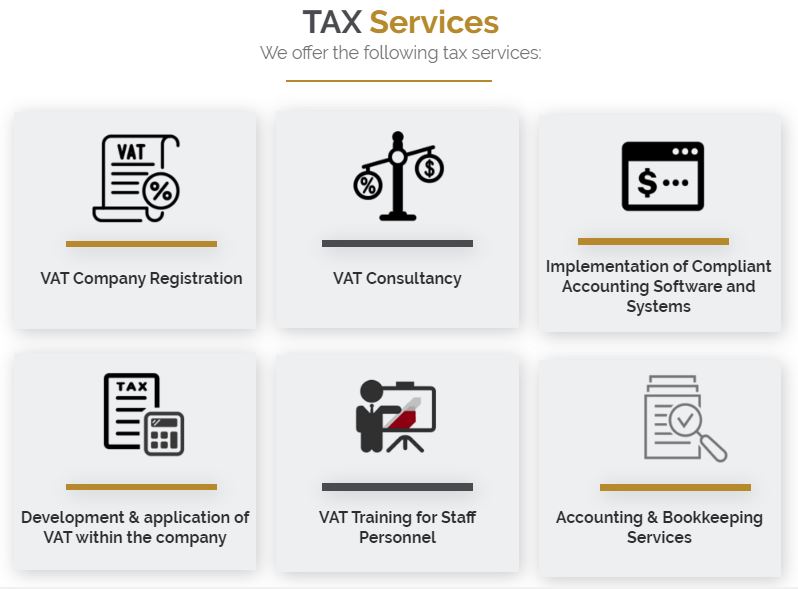
When a company hires a consultant to work for them on a project, it's usually a good idea for both parties to sign an agreement that defines the terms and conditions of the relationship. This agreement can protect both parties and ensure that the project runs smoothly.
What is a Consulting Services Contract (or a Contract for Consulting Services)?
A consulting agreement is a legal document that defines the scope and payment structure for the services being provided. This document is vital and should be reviewed prior to signing any agreement. It will ensure that both parties are clear about their expectations and avoid any unexpected surprises.
1. Scope of Work and Compensation
In order to ensure both parties understand the scope of the consulting services, the agreement should clearly state this. This also helps ensure that the services are not oversold and that they are being delivered on time.

2. Compensation
If the consultant is being hired for a specific period of time, it's often a good idea to include an amount that will be paid to the consultant at the end of the term. This will provide the client with an estimate of what they can expect to pay, and how to handle any disputes.
3. Non-Disclosure and non-Compete
A consulting services agreement should contain a provision that prohibits the consultant from competing with the company during the contract or for a certain length of time after it ends. This will protect the company's reputation and assets without recourse.
4. Agency Intellectual Property and Data & Background Information
The parties should have an agreement that states the ownership of any Agency intellectual property or data or background information that is used during the consulting project. It should also mention that they are forbidden from using any of the Agency's intellectual property or data without authorization from the agency.
5. Agency Representations and Warranties
An agreement should contain a section that lists the warranties and representations of consultants in relation to the project. These should include details about the project's scope, its completion, and the goals and objectives.

6. Miscellaneous Provisions
Additionally, the agreement should include miscellaneous terms that will govern the contract as well as resolve any disputes that may arise after or during the project. These might cover issues such as governing law, how disputes are resolved and the assignability of the rights and obligations under the contract.
7. Injunctive Relief
They agree that they will seek injunctive relief in any case where either party has violated its covenants or terms. This will ensure that the parties are not exposed to any additional risks and will be able to resolve any issues quickly and efficiently.
FAQ
How do I attract clients to my consultancy business
First, find a subject you're passionate about. This could be social media or public relations. However, it must be something that you are passionate about. You might have to start small, such as by finding niche markets like web design. Once you've found this niche, make sure you understand what makes it tick. What problems does it solve? What are the benefits? How can you help them?
You can also approach businesses directly.
If all else fails why not offer your services to free events like conferences and networking evenings? You'll meet many potential customers without spending money on advertising, and you'll be able to show off your skills.
What type of jobs can a consultant do?
Being a consultant will require you to have a solid understanding of business strategy as well as operations. Understanding how businesses work and their place in society is also essential.
Consultant work requires excellent communication skills and the ability to think critically.
Consultants must be adaptable because they may be asked to do different tasks at different times. They should be flexible enough to change direction quickly if needed.
They must be willing to travel for their clients. This type of work can take you all around the globe.
They also need to be able to handle pressure and stress well. Consultants might sometimes have to meet tight deadlines.
As a consultant, you may be expected to work long hours. You might not always be paid overtime.
What is the cost of hiring a consultant?
The cost to hire a consultant depends on many factors. These factors include:
-
Project size
-
Time frame
-
Scope of employment
-
Fees
-
Deliverables
-
Other considerations such as experience level, location, etc.
What is a consultant anyway?
Consultants are people who provide services to others. It's not just a job title; it's a role where you help others achieve what they want from life. Helping others to understand their options, and then helping them make the best decisions.
Consultants have the ability to solve any problems or challenges that may arise from projects. They offer guidance and advice about how to implement such solutions.
Any questions you have about business, technology and finance, leadership or strategy, human resource management, customer service, customer service, or any other topic, a consultant can answer them.
How long does a consultant take?
The length of time required varies depending on your background and industry. Most people begin their journey with less than a month before finding work.
However, many consultants spend years honing their skills prior to finding work.
How much do consultants make?
While some consultants make $100k+ per year, most consultants only earn between $25-$50k. A consultant's average salary is $39,000 This applies to both hourly and salaried consultants.
Salary depends on experience, location, industry, type of contract (contractor vs. employee), and whether the consultant has his/her own office or works remotely.
Do I need to pay tax on consulting income?
Yes, tax will be payable on any consultancy profits. The amount depends on how much you earn per year.
If you are self employed, you can claim expenses in addition to your salary. This includes rent and childcare.
But you won't be able to deduct interest payments on loans, vehicle depreciation, or the cost of equipment.
You can only claim back 25% of your expenses if you earn less than PS10,000 a year.
However, even if your earnings exceed this threshold you may still be subject to tax depending on whether or not you are a contractor or an employee.
Employers are taxed via PAYE (pay as your earn), and contractors through VAT.
Statistics
- Over 50% of consultants get their first consulting client through a referral from their network. (consultingsuccess.com)
- WHY choose me: Why your ideal client should choose you (ex: 10 years of experience and 6-week program has helped over 20 clients boost their sales by an average of 33% in 6 months). (consultingsuccess.com)
- So, if you help your clients increase their sales by 33%, then use a word like “revolution” instead of “increase.” (consultingsuccess.com)
- "From there, I told them my rates were going up 25%, this is the new hourly rate, and every single one of them said 'done, fine.' (nerdwallet.com)
- On average, your program increases the sales team's performance by 33%. (consultingsuccess.com)
External Links
How To
How do I start a consultancy company?
A consulting business is a great way of making money online. It doesn't require any prior business experience nor capital. It is possible to create a website to launch your consulting business. After you have built a website, social media platforms such Instagram, Pinterest and LinkedIn will be useful to spread the word about your services.
These tools allow you to make a marketing program that includes the following:
-
Writing content (blogs).
-
Establishing relationships (contacts).
-
Generating leads (lead generation forms).
-
Selling products on e-Commerce websites
Once you have created your marketing strategy you will need to find clients that will pay for it. While some people prefer to attend networking events and groups, others prefer online methods like Craigslist, Wikijiji, or Kijiji. You have the freedom to choose.
After you have found new clients, it's important to discuss terms and payment options. This could include flat fee contracts, hourly fees or retainer agreements. You need to be clear about what you expect of a client before they accept you as a client.
The most common type of contract for a consultancy service is an hourly agreement. You agree to offer certain services at a fixed fee each month or every week. Based on the service you provide, you might be able to negotiate a discount based on the length of your contract. Before you sign a contract, ensure you understand everything.
Next, create invoices and then send them to clients. Invoicing is one those things that seem so simple until you actually do it. You have many options to invoice your clients. You can choose to have your invoices sent directly to your clients or to print them and send them. No matter what you do, make sure it works!
Once you have completed creating invoices you will want to collect payment. PayPal is preferred by most because it is easy-to-use and offers multiple payment options. Other payment processors, like Square Cash or Google Wallet, Square Cash or Apple Pay, Venmo and Venmo are also available.
Once you're ready and able to collect payments, you should set up bank accounts. You can keep separate checking and savings accounts to track income as well as expenses. When paying bills, it is also beneficial to set up automatic transfer into your bank account.
Although it can seem daunting when you first start a business as a consultant, once you get the hang of it, it will become second nature. This blog post will provide more information about starting your own consultancy business.
The best way to make extra cash is to start a consulting business. Many consultants work remotely. They don't have any need to deal with office politics, long hours or office politics. Being able to work remotely allows you more freedom than traditional employees.